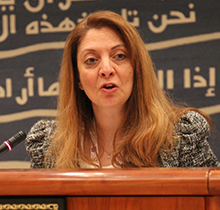Host and refugee populations: cooperation in a fragmented society
Lebanon is currently hosting around one million refugees from the war in Syria – and given longstanding tensions between the two countries, the question of whether the refugees and their hosts can live harmoniously is one of great policy interest. This column reports the results of a pilot study that aims to measure cooperation between the native and refugee populations.
Has international migration reduced internal migration in Egypt?
Urbanisation is key for economic development, yet Egypt has been lagging behind most other North African countries in this respect in recent decades. This column reports that the country’s lack of urbanisation is partly explained by very low internal migration rates, which in turn seem to have been dampened by high rates of international migration by Egyptians.
The impact of hosting refugees on the labour market
What are the labour market effects of a massive influx of people on members of the host community? This column examines the experience of Jordan resulting from the conflict in neighbouring Syria. Evidence shows that Jordanians living in areas with high concentrations of Syrian refugees had no worse labour market outcomes than Jordanians with less exposure to the influx.
Informality during political turmoil: evidence from the Arab Spring
How was the balance between Egypt’s formal and informal economies affected by the political turmoil that accompanied the Arab Spring? This column reports research showing that the number of jobs with no contract or social security coverage has increased in recent decades, but particularly since the uprising in 2011. Educated young people have been hurt more than the less educated.
Brain gain from return migration: evidence from Egypt
Far from causing ‘brain drain’ in the developing world, temporary migration can lead to a ‘brain gain’ for the sending countries. This column reports research on Egypt showing that migrants acquire significant human capital while they are overseas, which increases their probability of upward occupational mobility when they return home. This provides a potential source of economic growth for their country of origin.
Return migration and gender norms: evidence from Jordan
Migration can be responsible for the spread of new social norms about gender roles. This column explores the impact of temporary migration from Jordan to more conservative and highly unequal neighbouring countries. The results indicate that women in households with a return migrant become more conservative themselves.
Job creation and labour market regulation: flexibility versus security
Job creation in the formal private sector is vital for inclusive economic growth in many MENA countries, but in some cases, it is being hampered by over-protective labour regulations. This column emphasises the importance of a balanced approach between flexibility in the labour market and the security of workers’ earnings.


